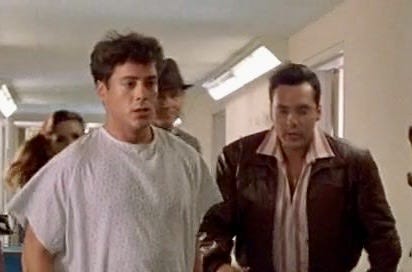Just Deserts: Actor Tom Sizemore (1961-2023)
Swagger, warmth and a wink from a troubled and great American actor
“There was something about the alienation and beauty of actors like Montgomery Clift, Marlon Brando and James Dean that captivated me,” actor Tom Sizemore wrote in his memoir. “Still, it was more than reverence that I had for them…” Sizemore, a convicted criminal who died after struggling with drug addiction—the scourge of our times—and suffering a stroke last month, was born in Detroit and raised in a home near Tiger Stadium. He had been vilified and ridiculed in the press over his priapism—a painful condition in which an erection lasts for an extended time period—and claims that were magnified by the Me, Too movement.
Sizemore admitted in the 2016 memoir that he had attempted suicide. Besides his engagement to Heidi Fleiss, a pimp for high-priced prostitutes, who later accused him of abuse, Sizemore was known as a remarkable character actor. According to the Hollywood Reporter, he recalled that, as a boy, his dad and uncle took him to see Taxi Driver, which prompted him to pursue a c…
Keep reading with a 7-day free trial
Subscribe to Autonomia to keep reading this post and get 7 days of free access to the full post archives.



